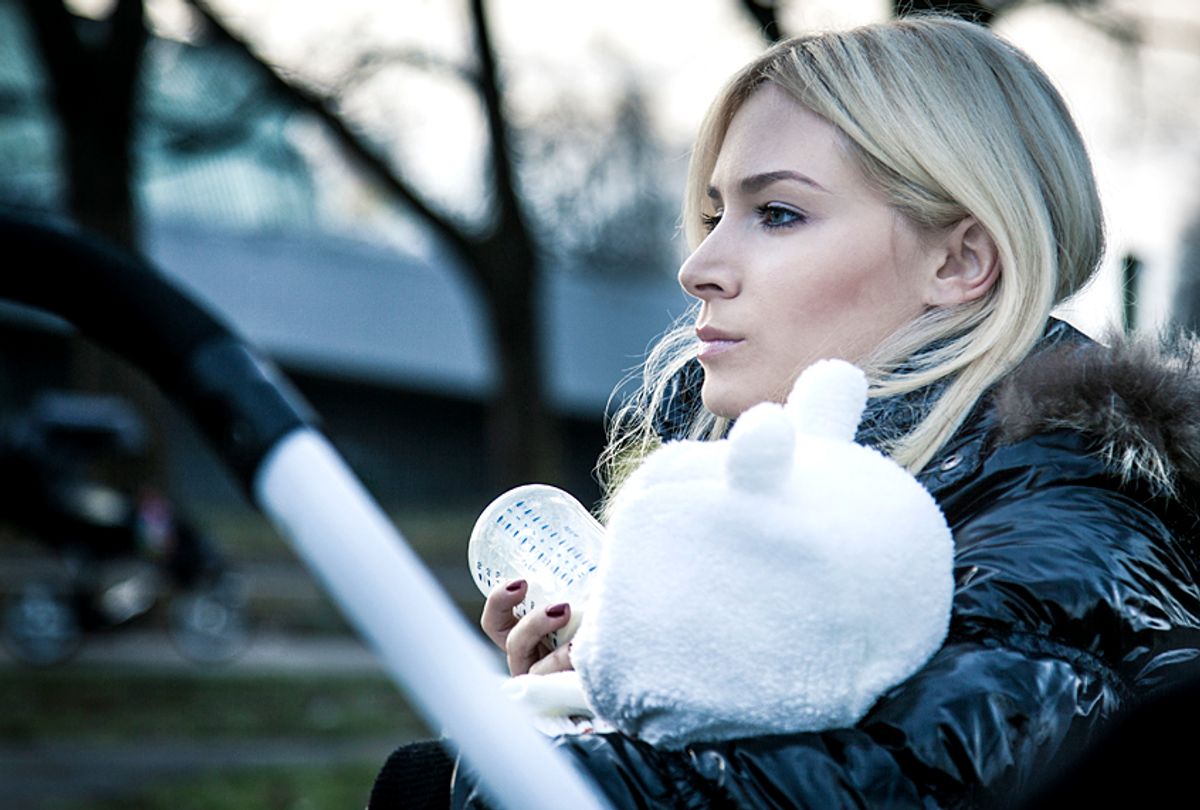Motherhood is “the state or experience of having and raising a child.” The very definition implies accompaniment. But motherhood can be a lonely-making experience, whether it’s because of postpartum depression, the pressures of guarding a human life, or the quest to get pregnant in the first place.
In this episode of "The Lonely Hour," I first talk to Kate Rope, editorial director of the Seleni Institute, a nonprofit organization that provides clinical care for mothers as well as funding for women’s reproductive and maternal mental health research, and author of "Strong As a Mother: How to Stay Healthy, Happy, and (Most Importantly) Sane from Pregnancy to Parenthood." Rope also wrote “The Bittersweet Loneliness of Motherhood” for HuffPo: “At the end of every day, when I crawl into bed next to my husband, there is a part of me that stays alert, a little part I save just for my daughters in case they need it—a tiny, stoic sentry who never sleeps and guards her post alone.” She expands both on that and on the kinds of services Seleni offers, which is a lesson in the kinds of difficulties that can come with motherhood.
Molly Guy, owner of bridal showroom Stone Fox Bride, was part of The Lonely Hour’s episode on social media, but I initially reached out to her to talk about mothering and about giving birth. “The couple times my husband and I were most connected, whether or not we wanted to be, was when I was giving birth to our kids,” she told me. “It was totally bloody and awful and painful and beautiful and scary and primal and I’m still amazed that I’ve gone through that experience with him.”
My last guest is Alyssa Shelasky. She’s a food and travel writer now working on two TV shows: one about dating, the other about a woman who decides to have a baby on her own, through a sperm donor. In this case, art imitates life, because that’s exactly what Shelasky herself did.
"Positivity is my thing," she told me. "I don't think I ever talked to anybody about [my longing for a child] . . . maybe my mother, but it was extra hard, talking about it with my mother and my sister, because they wanted it for me as badly as I wanted it for me. It was just heavy. My bitterness was growing in a very alone way."
"I would walk down the streets of Dumbo and Brooklyn Heights around this time, when I was 37, and everybody has a baby stroller, carrying a toddler, or whatever," she continued. "I would just say, like, 'Why not me? What did I do wrong that God is punishing me? How did I f**k up my life so bad that every other woman can find a way to have a child, and I can't?'"
But she did. Listen to the full episode below:

Shares